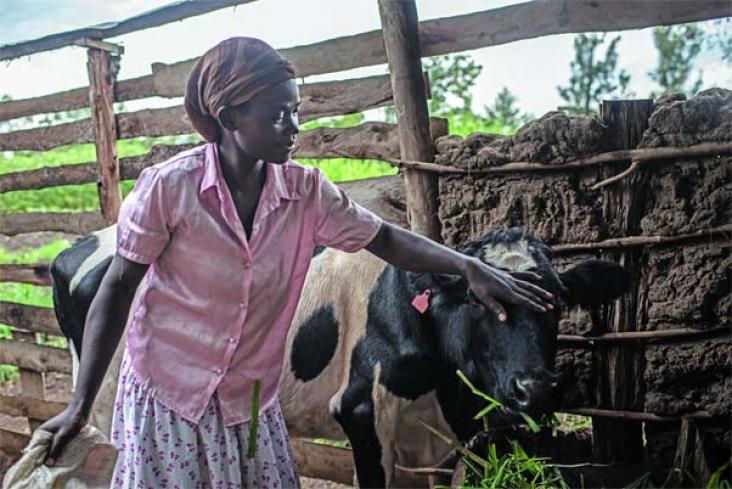After a long-term decline in the frequency and lethality of famines, 2017 has witnessed resurgent international concern over the issue.
After a long-term decline in the frequency and lethality of famines, 2017 has witnessed resurgent international concern over the issue.
Over the last two decades, there has been growing interest on the effects of agricultural practices on soil biology in Europe.
Elsevier,
Sustainable Food Systems from Agriculture to Industry, Improving Production and Processing, 2018, Pages 3-46
This book chapter addresses goals 2 and 12 by explaining the current state of food production, the challenges it poses to food security, and options for ensuring global food supply going forward.
Since 2000, mobile phone technologies have been widely adopted in many developing countries.
This paper shows that despite progress in reducing extreme poverty, little progress has been made in reducing the number of people living on between $1.25 and $2 a day and it provides updated estimate

How to feed a population of 9bn in 2050? This was the question posed which provided the impetus for Elsevier to launch the bi-annual International Conference on Global Food Security Conference in 2013. Now in its 3rd year this highly regarded, research-led conference is focusing on five core conference themes to reflect an integrated approach to identifying solutions to the complex global challenge of food security: 1. Food creation 2. Food safety and bio security 3. Food loss and waste 4. Food in a changing society 5. Food utilization. Achieving global food security whilst reconciling demands on the environment is the greatest challenge faced by mankind. This directly supports SDG 2: to end hunger, achieve food security and improved nutrition and promote sustainable agriculture.
Background Studies have shown wide variation in the prevalence of lactose malabsorption across the world, but no systematic reviews or meta-analyses have recently assessed the prevalence of lactose ma
Multiple nutrient deficiencies related to severe soil fertility depletion have emerged as the major constraint to the sustainability of agriculture on a global scale.

Nearly 30 years on from its launch by a group of UK West Country dairy farmers, the charity Send a Cow is making a big difference to people’s lives in seven countries in Africa. With its new campaign under way, Farmers Weekly finds out what the charity hopes to achieve and how farmers abroad are benefiting with the help of their UK counterparts. Endeavours such as this support SDG 1 No Poverty, and SDG 2 Zero Hunger and are a great example of SDG 17 Partnerships for the goals in action.
